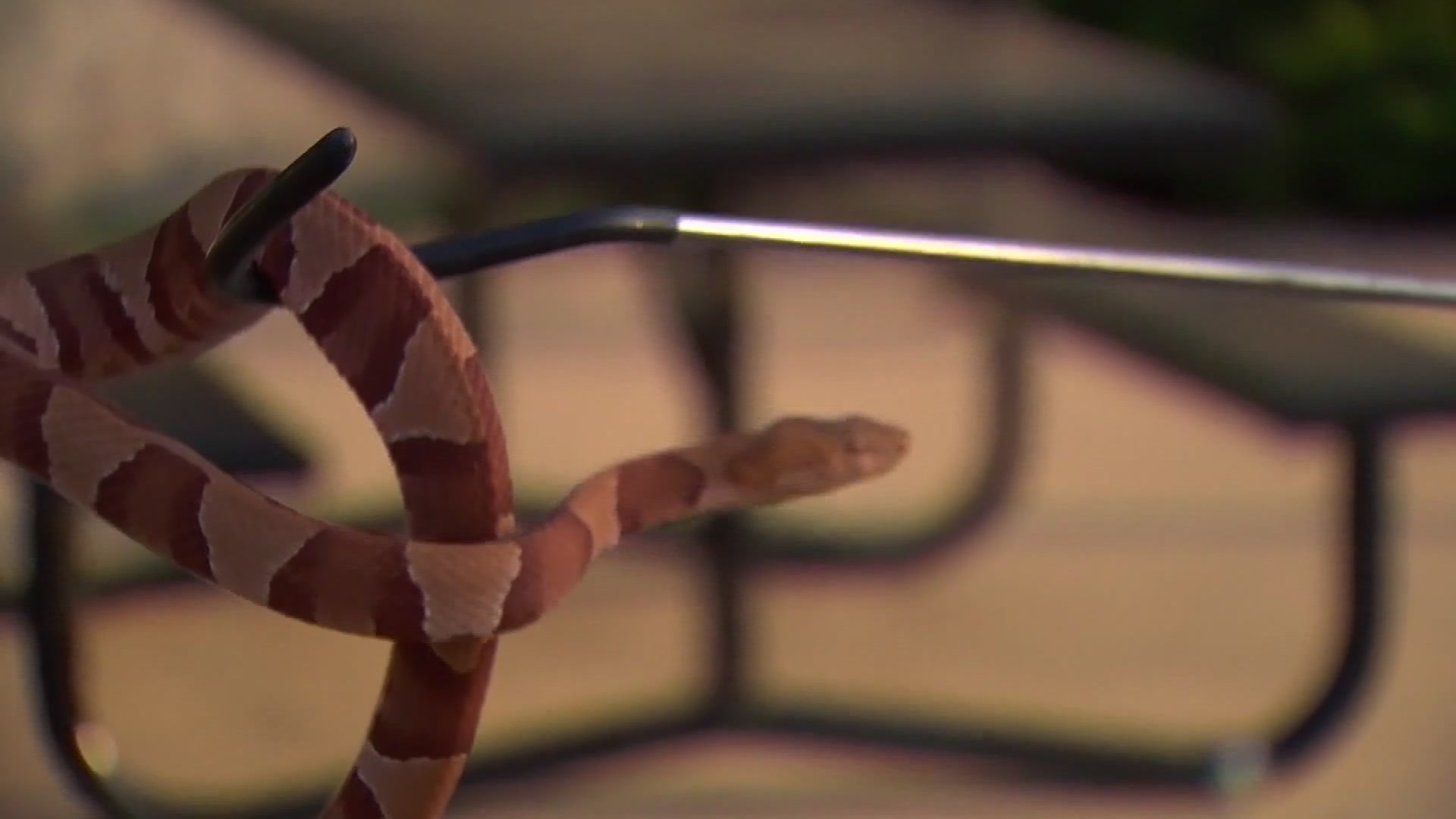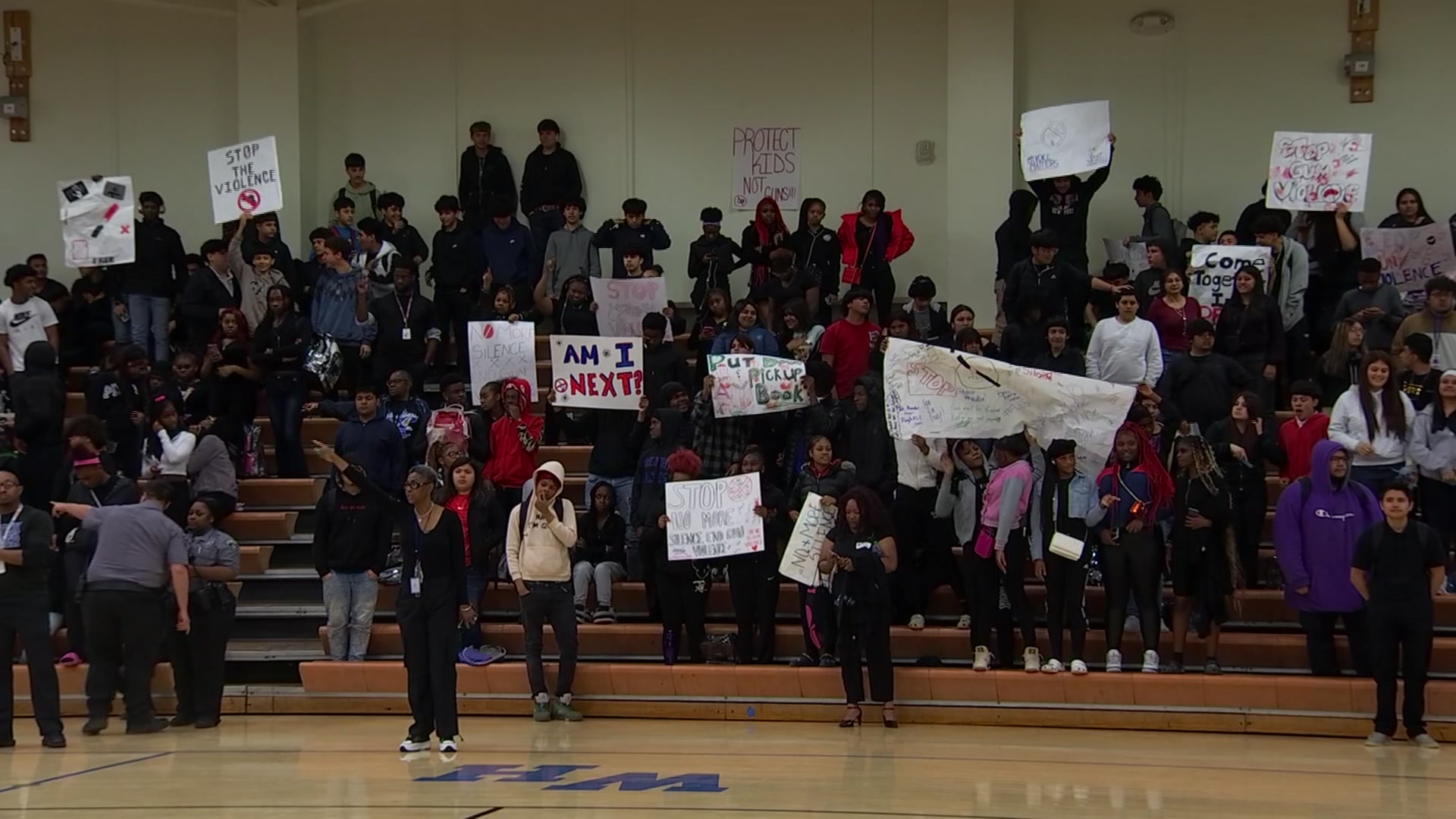The 6-foot-tall block of granite is etched with 13 names, each a victim in the shooting rampage at Fort Hood one year ago.
"Death leaves a heartache no one can heal -- Love leaves a memory no one can steal" is engraved at the top of the rectangular marker that will be unveiled near other post memorials on Friday, the one-year anniversary of the shooting. Until now, the only outward reminders of the worst mass shooting on a U.S. military base have been several wreaths and crosses along the fence built around the now-shuttered building where it happened.
Army Chief of Staff Gen. George Casey and Army Secretary John McHugh also will present awards to more than 50 soldiers and civilians whose actions "went above and beyond the call of duty" -- including the two police officers who first responded to the scene and engaged in separate gun battles with the shooter. Capt. John Gaffaney, who was fatally shot after he threw a chair at the gunman, is to receive an award posthumously.
Family members of those killed will be at the ceremony and a memorial service, as will the soldiers, emergency personnel and others who helped save lives on Nov. 5, 2009. For many, it will be the first time since the aftermath of the attack that they have come together to remember what happened.
Those at Fort Hood rarely discuss the tragedy, and Army combat uniforms hide most scars marring the bodies of more than two dozen soldiers wounded that day.
"Nobody talks about it. It's too much to handle," said Staff Sgt. Jeannette Juroff, who can see the medical building's roof from her desk. "I'll have my moments, and I'll catch myself staring at it. Sometimes a tear will come out of my eye, and I don't even realize it."
One year ago, a gunman wearing an Army combat uniform stood near the building's front door, shouted "Allahu Akbar!" -- which means "God is great!" in Arabic -- and opened fire in a crowded medical building where deploying soldiers get vaccines and other tests, witnesses say. He fired rapidly, pausing only to reload, shooting at soldiers hiding under desks and those fleeing the building, according to witnesses.
The gunman was identified by witnesses and authorities as Maj. Nidal Hasan, an Army psychiatrist and American-born Muslim who was to deploy to Afghanistan the following month. Hasan, who was paralyzed from the chest down when he was shot that day, is charged with 13 counts of premeditated murder and 32 counts of attempted premeditated murder. His Article 32 hearing to determine if there's enough evidence to send him to trial will resume later this month.
Some of the wounded soldiers later deployed with shrapnel left in their bodies or haunted by nightmares. Others recovered and have returned to duty as best they can, despite being told they'll never run again or have full use of their arms.
"There's no other treatment that can be done ... (but) my focus is to heal, to continue to serve," Sgt. Alonzo Lunsford Jr., who was shot five times and lost most vision in his left eye, testified last month at the hearing.
Survivors and the victims' families are in different stages of grief.
Strangers a year ago, the group -- which includes some wounded soldiers and their relatives, emergency personnel and others who helped that day -- calls itself the "Nov. 5 family." Group members chat online in a private chat room, share information about military benefits and counseling services, and discuss the latest developments in the case against Hasan.
Local
The latest news from around North Texas.
A few have met a couple of times to place wreaths on the fence.
Joleen Cahill, whose husband Michael Grant Cahill died that day, said she wanted to memorialize the shooting site because, "when I would drive by it, I would see the violence, and there was nothing to negate the violence in that area. I wanted to bring some hope and perhaps a little bit of peace."
Army Secretary John McHugh has addressed more than 1,000 people gathered to mark the first anniversary of the mass shooting at Fort Hood, saying the tragedy will be "part of our history forever."
McHugh and Army Chief of Staff Gen. George Casey were to present awards to more than 50 soldiers and civilians who actions "went above and beyond the call of duty" on Nov. 5, 2009, when a gunman opened fire on a soldier readiness center at the post. The shooting that killed 13 people and wounded scores of others was the worst attack on a domestic Army post. An Army psychiatrist, Maj. Nidal Hasan, is charged in the attack.
McHugh said soldiers and civilians showed remarkable courage and strength that day.
"It's a chapter in this Army that no matter how many tears may fall will never, ever be washed away and will be part of our history forever," he said.



